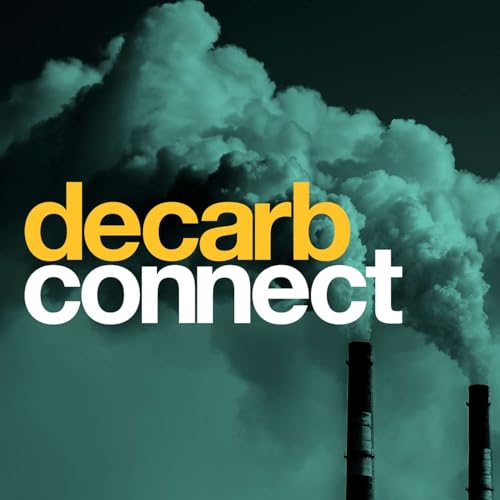With 2025 underway, we are midway through what is the most significant decade in tackling climate and the energy transition. Listen in to this conversation between Alex Cameron, Founder of Decarb Connect, and Ben Moens, Managing Director of Engie Impact, as they explore the progress, headwinds and tailwinds impacting industrial decarb.
You’ll get insights into 5 key technologies still set to impact industrial decarb, and also the route forward and expectations of where we will be by 2030.
Key Takeaways:
· How the shift in delivery and attitudes around industrial decarbonisation will shape the next 5 years
· The impact of the unforeseen crises of the 2020s and how we have responded to them
· How a growing need to focus on climate economics is driving tech adoption and strategy
· Renewables & electrification: there are strong fundamentals and momentum, but how can industrials manage market volatility?
· Nuclear: a clear shift in sentiment but when will meaningful contributions be possible?
· Biomethane – a critical tool for many, but what active sourcing approaches will be needed?
· Hydrogen – how has the hype bubble and contraction redrawn the future market?
· Carbon capture - a niche solution which has gained substantial financial support
· End-to-end economics in a value chain, and ways to manage the transition through the downstream willingness-to-pay and transition risks
Show Links:
- Connect with Ben Moens and the team at Engie Impact
- Follow Alex Cameron on LinkedIn and find how to get involved with the membership and work of Decarb Connect
Learn about our Sponsor: Janno Media
Many thanks to our production partner and sponsor Janno Media for their support in delivering this podcast. They continue to facilitate great conversations that connect us with our audience, and their skills and expertise mean we can concentrate exclusively on generating great content to engage, inform and inspire.
Want to learn more about Decarb Connect?
Our global membership platform, events and facilitated introductions support the acceleration of industrial decarbonization around the world. Our clients include the most energy-intensive industrials from cement, metals and mining, glass, ceramics, chemicals, O&G and many more along with technology disruptors, investors and advisors.
If you enjoyed this conversation, find out about our portfolio of events in US, Canada, UK and Europe – or explore our Decarbonisation Leaders Network (DLN), and learn why more than 200 members from the energy-intensive sectors have joined to share insights, meet partners who can accelerate their net zero plans and why it’s the fastest growing network of its kind.
 6 分
6 分 15 分
15 分 11 分
11 分 1 時間 1 分
1 時間 1 分 43 分
43 分 44 分
44 分 56 分
56 分 51 分
51 分

